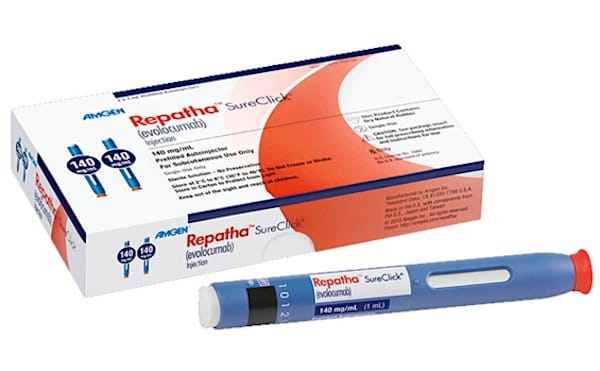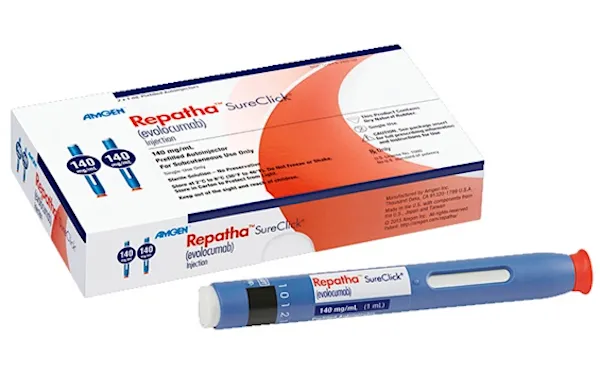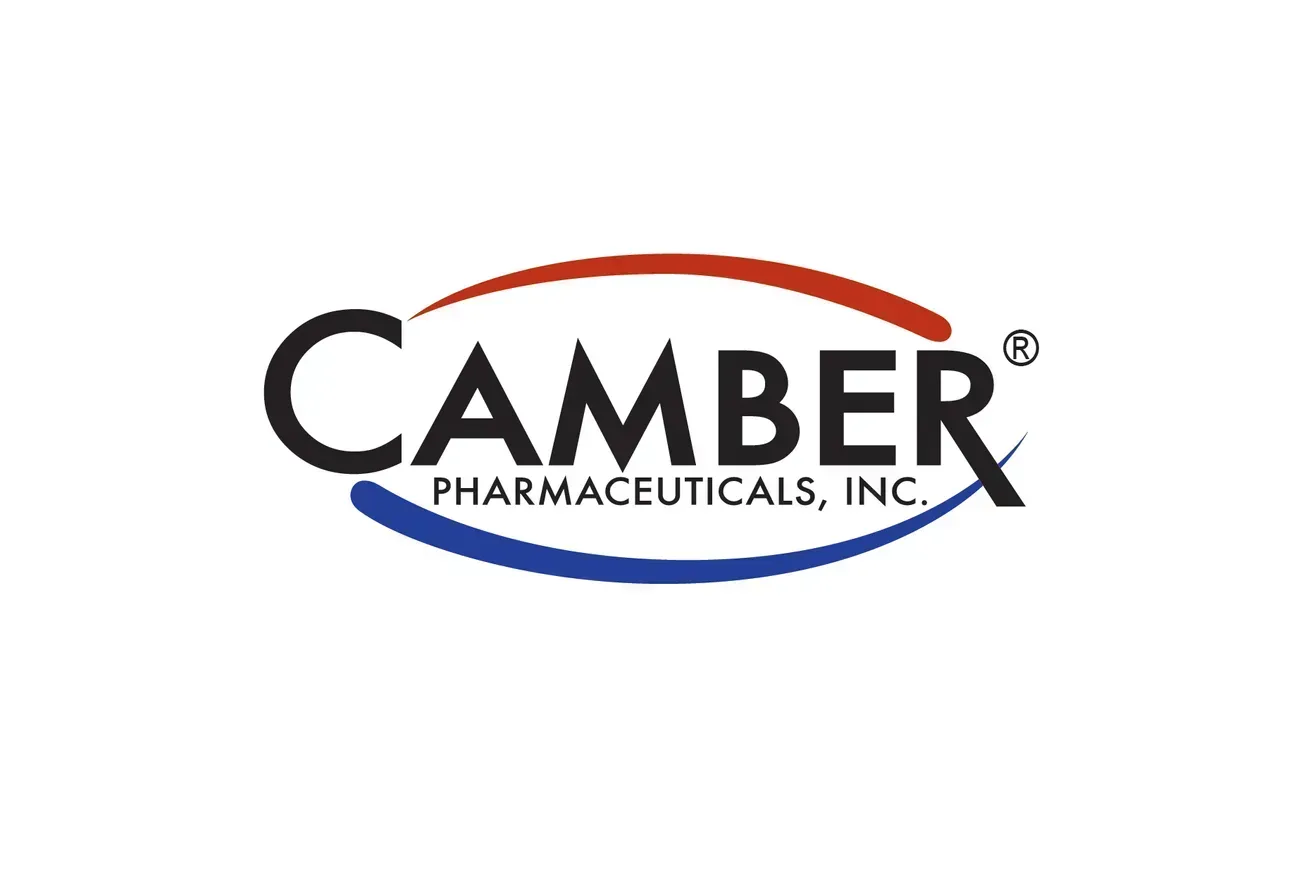Table of Contents
THOUSAND OAKS, Calif. — After a priority review of its supplemental Biologics License Application, Amgen has gained approval from the Food and Drug Administration for the cardiovascular drug Repatha.
Amgen said Repatha (evolocumab 140 mg/ml injection) is the first PCSK9 inhibitor to prevent heart attacks, strokes and coronary revascularizations in adults with established cardiovascular disease.

The FDA also approved Repatha to as an adjunct treatment to diet, alone or in combination with other lipid-lowering therapies, such as statins, for adults with primary hyperlipidemia to reduce low-density lipoprotein cholesterol.
“We are pleased that the FDA made the inclusion of our outcomes data a priority so that patients can benefit from Repatha’s ability to reduce life-changing events of heart attacks and strokes,” stated Sean Harper, executive vice president of research and development at Amgen.
“Despite treatment with current best therapy,” he added, “many patients are still at high risk for cardiovascular events. Physicians now have a new FDA-approved treatment option to prevent cardiovascular events by dramatically lowering LDL cholesterol with Repatha, especially for patients already on maximally-tolerated statin therapy who need further LDL cholesterol lowering.”
In the cardiovascular outcomes study for Repatha, the medication reduced the risk of heart attack by 27%, the risk of stroke by 21% and the risk of coronary revascularization by 22%, Amgen reported.
“In the U.S., every 40 seconds someone has a heart attack or stroke, and nearly one in three of these patients will have another event, leading to a societal cost that exceeds $600 billion annually. With this approval, it’s now more important than ever that appropriate patients obtain access to Repatha in order to avoid preventable heart attacks and strokes,” commented Anthony Hooper, executive vice president of global commercial operations at Amgen. “We will continue to work with payers to help ensure the patients who need Repatha the most are able to get this innovative medicine.”
Amgen said it will provide personalized support services for U.S. patients and providers via its RepathaReady. The program includes a Repatha $5 co-pay card for eligible commercial patients, insurance coverage support and injection training. Amgen added that it also provides patient assistance for its medicines marketed in the U.S., including free medicines through The Amgen Safety Net Foundation for qualifying individuals with no or limited drug coverage.







